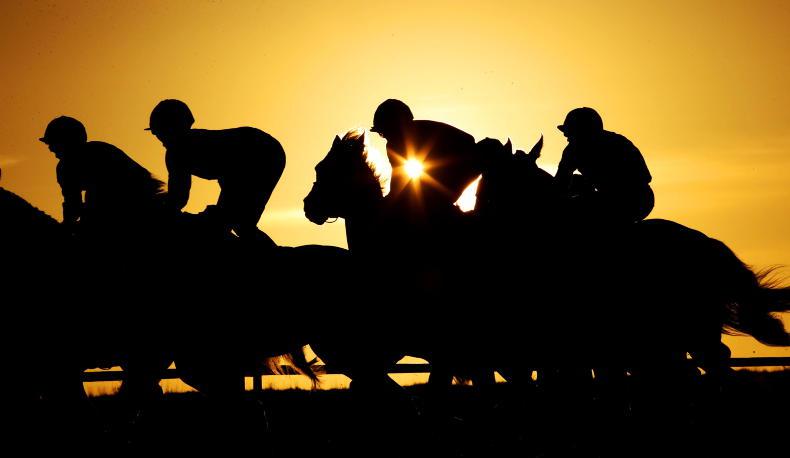IRISH racehorse owners and breeders with horses in training in Britain should take note that the British Horseracing Authority (BHA) has amended its rules so that all domestically trained racehorses entered to run in Britain must be signed out of the human food chain.
This change came into effect on January 1st this year. From this date, no entry for any domestically trained horse is accepted unless it has been declared as not intended for human consumption via the Weatherbys App and horse’s passport.
While currently this new rule applies to all horses trained in Britain, the BHA are liasing with other international jurisdictions on the practicality and feasibility of applying EU legislation to include all international runners.
Under the new BHA rule a horse signed out of the human food chain is also excluded from entering the animal food chain, for example dog food, which is regulated to the same standard. All updates relating to the horse’s food chain status must now be recorded digitally using the Weatherbys ePassport.
No sale to abattoirs
The BHA rule change will mean horses cannot be sent to abattoirs in exchange for money to be slaughtered for food. But horses can still be sent to an abattoir as a method of humane disposal though can no longer be sold for food.
This change is to ensure that all racehorses can be treated with the most appropriate drugs if injured on a racecourse. At present, any horse not signed out of the human food chain cannot be given certain drugs, such as painkiller phenylbutazone, or ‘bute’, under current EU Medicines Regulations.
The BHA believes the change demonstrates their commitment to improving standards of care for their racehorses before, during and after racing.
It is important that the impact of this change is closely monitored to avoid and prevent unintended consequences.
Since the UK slaughterhouse system is no longer an outlet option for humane disposal of racehorses at the end of their career, the change could be considered as a retrograde step in potentially introducing further risks to the welfare of these horses, due to inability of owners to pay the significant costs of euthanasia and disposal.
However, this change now places an even greater onus on the horse racing industry to ensure that a system with full responsibility and traceability for all former racehorses from birth to death, is put in place.
The British racing code of practice on euthanasia for aiding trainers and owners with their decisions on their horses end-of-life stages of their career clearly states that whenever possible, euthanasia should be performed at home or in suitable surroundings.
On this basis, the transporting of horses to an abattoir to be sold for consumption is no longer classed as euthanasia and is now an approach that will not be tolerated in Britain.
This BHA rule change comes six months after the airing of the BBC Panorama investigation entitled The Dark Side of Horse Racing which highlighted serious breaches of the slaughter regulations.
In both Britain and Ireland, the Department of Agriculture issue licences to their approved abattoirs, and the conditions of licence include strict veterinary supervision.
The Panorama investigation revealed that 4,000 former racehorses were slaughtered in Britain and Ireland since the beginning of 2019. Most, but not all, were trained in Ireland.
The programme caused uproar, but it also highlighted the fate of many horses in the industry who die while racing, in training or in abattoirs.
It is hoped within British racing circles that the BHA’s recent move on compulsory exclusion of racehorses from the human food chain will encourage Horse Racing Ireland to implement similar measures.
Liz O’Flynn MBV Cert WEL MRCVS is in Equine Practice and is based at Oranmore Equine Veterinary Clinic


 This is a subscriber-only article
This is a subscriber-only article
 It looks like you're browsing in private mode
It looks like you're browsing in private mode





SHARING OPTIONS: